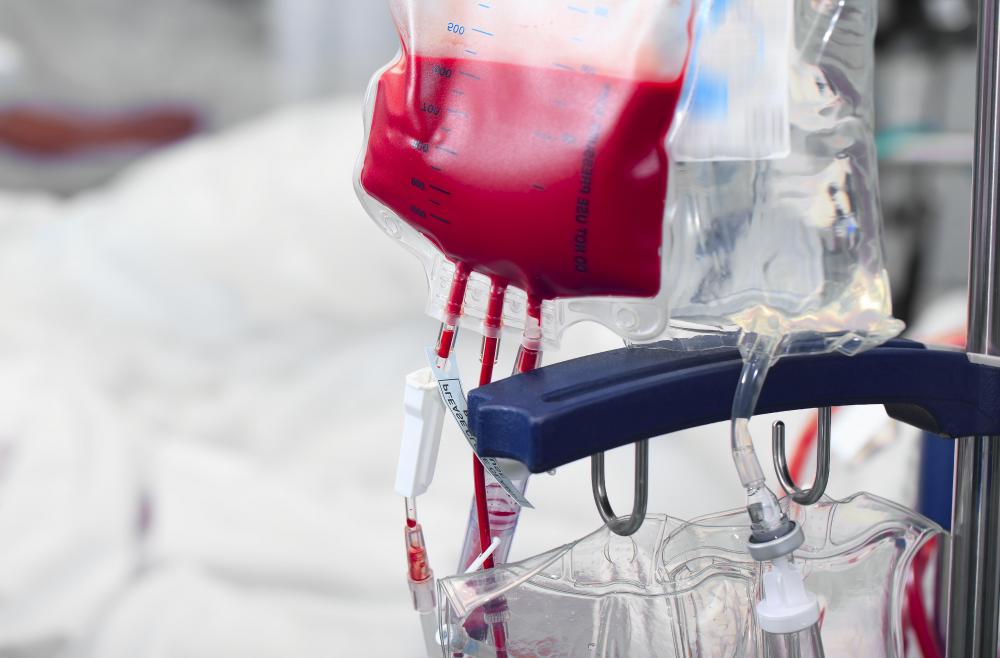At WiseGEEK, we're committed to delivering accurate, trustworthy information. Our expert-authored content is rigorously fact-checked and sourced from credible authorities. Discover how we uphold the highest standards in providing you with reliable knowledge.
What Is a Blood Bank Refrigerator?
A blood bank refrigerator stores biomedical supplies like blood products at controlled temperatures. For safety, the system includes monitoring equipment to regularly check and report temperatures. It may also have security measures like locking doors to protect the integrity of the contents. Blood banks and facilities that work with blood products may need to use specialized refrigeration units to remain compliant with the law and maintain high storage standards for patient safety. Units come in a range of sizes for different applications and can be custom built if necessary.
One concern with storing blood products is the narrow range of acceptable storage temperatures necessary. If blood gets too warm or too cold, it may be spoiled, or there could be concerns about its integrity that would make it inadvisable to transfuse. The blood bank refrigerator very carefully controls temperatures and uses tight vacuum seals and fans to keep the environment within a narrow temperature range. In addition, it may include rapid recovery systems to equalize the temperature when the door is opened and closed.

For safety, some blood bank refrigerator equipment sounds an alarm or sends a signal to a monitoring room when the temperature exceeds the safe range. An operator can check the fridge, confirm that there is a temperature abnormality, and address the problem. Logs can be stored in digital format to generate a record showing that the facility’s fridges have been maintained in the proper range.

Another issue can be bacterial contamination. A blood bank refrigerator may be made from bacteria-resistant components, with construction that makes it easy to clean. Sliding shelves and trays can be rounded so they won’t puncture bags of blood products, and may include grips with antibacterial plastic coatings to keep the interior clean. The blood bank refrigerator doors may lock to control access, limiting the chances of contamination and waste. Locks may open with keys or numberpads, depending on design and the level of access control needed.

In addition to refrigeration units ranging in size from under-counter units to three-door fridges, it’s also possible to install a walk-in cooler. For blood banks that handle large volumes of material, this can be necessary to provide enough room for storage. Blood bank freezers are also available for plasma, which can be frozen for storage and thawed when it is needed. The best option can depend on the type and volume of blood products handled in a facility.
AS FEATURED ON:
AS FEATURED ON:















Discuss this Article
Post your comments